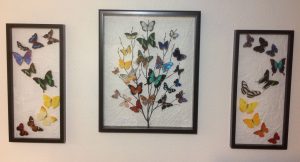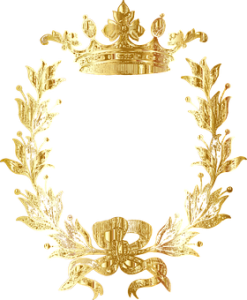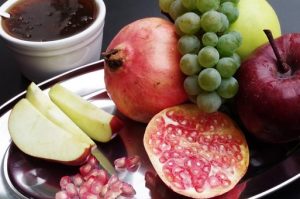 In almost every room of our house we display butterflies my husband artistically framed in shadow boxes. Our kids have observed, heard about, and learned way more about butterflies than the average person because of my husband’s past related business.
In almost every room of our house we display butterflies my husband artistically framed in shadow boxes. Our kids have observed, heard about, and learned way more about butterflies than the average person because of my husband’s past related business.
Once when the kids were young, we watched a caterpillar form its chrysalis. When hatching day finally arrived we anxiously observed the struggle that occurred as the newly-winged creature fought to escape its temporary encasement. We might have been tempted to help it break free, to speed up what looked like a painful process. But pushing against the chrysalis walls actually properly forms and strengthens the butterfly’s wings, equipping it for survival.
 On a human level I recently read about an extreme-sport-loving grandfather who took forced exercise to a new level. He started a tradition that at age six each of his four daughters, and subsequent grandchildren, would climb what we in Colorado call a Fourteener—a mountain whose summit reaches or exceeds 14,000 ft above sea level. Each child majorly struggled through the endeavor but the grandfather saw value in the pain and perseverance.
On a human level I recently read about an extreme-sport-loving grandfather who took forced exercise to a new level. He started a tradition that at age six each of his four daughters, and subsequent grandchildren, would climb what we in Colorado call a Fourteener—a mountain whose summit reaches or exceeds 14,000 ft above sea level. Each child majorly struggled through the endeavor but the grandfather saw value in the pain and perseverance.
In the Bible we read about a young man who struggled and persevered for years. After being anointed king by Samuel, David spent at least a decade hiding and fleeing from jealous King Saul before ascending the throne. Out of deference to God, David slept in caves and lived a nomadic life during that time, far from the comforts of home.
 David went on to become the greatest king in Israel’s history. I Samuel 13:14 and Acts 13:22 call David a man after God’s own heart. During his years of hardship and struggle, he learned to rely on the Lord, his only source of help and hope at that time. Thus David brought to the throne the hard-earned qualities of perseverance, patience, compassion, and faith.
David went on to become the greatest king in Israel’s history. I Samuel 13:14 and Acts 13:22 call David a man after God’s own heart. During his years of hardship and struggle, he learned to rely on the Lord, his only source of help and hope at that time. Thus David brought to the throne the hard-earned qualities of perseverance, patience, compassion, and faith.
In contrast, Solomon (David’s son and future heir) grew up in a palace where his needs and wants were provided “on a silver platter.” While he never lacked anything physically, he recognized his need for wisdom from God to lead the nation, and he received it like no other.
Although granted this incredible divine gift of wisdom, Solomon failed to steadily exercise it, making foolish lifestyle decisions (like marrying many foreign wives). He lacked the perseverance, patience, compassion, and faith of his father. He trusted in military strength and political power rather than in God. And because self-indulgence was his norm, we read in Ecclesiastes his conclusion that a pleasure-seeking, hedonistic lifestyle is meaningless. It took him a lifetime to learn that lesson, but by then it was too late.
 As much as we want our lives (and the lives of loved ones) to be struggle-free and comfortable, this doesn’t always bring the greater good. The benefits of hard work, self-denial, of exercising moderation and wisdom, more than outweigh temporary discomfort. Life on a silver platter isn’t the answer. But relying on God to lead, strengthen, and encourage us day by day will never disappoint.
As much as we want our lives (and the lives of loved ones) to be struggle-free and comfortable, this doesn’t always bring the greater good. The benefits of hard work, self-denial, of exercising moderation and wisdom, more than outweigh temporary discomfort. Life on a silver platter isn’t the answer. But relying on God to lead, strengthen, and encourage us day by day will never disappoint.


Very helpful observations, Carrie. The only thing I might add is that when we see others persevere, deny themselves immediate gratification, and exercise patience, as well as their faith in God’s promises, it is a very powerful example for those who know and/ or watch that person, e.g., children seeing these qualities in their parents have an opportunity to learn the value of those qualities. In that regard, living such a life can not only be good for the butterfly but for generations of butterflies!